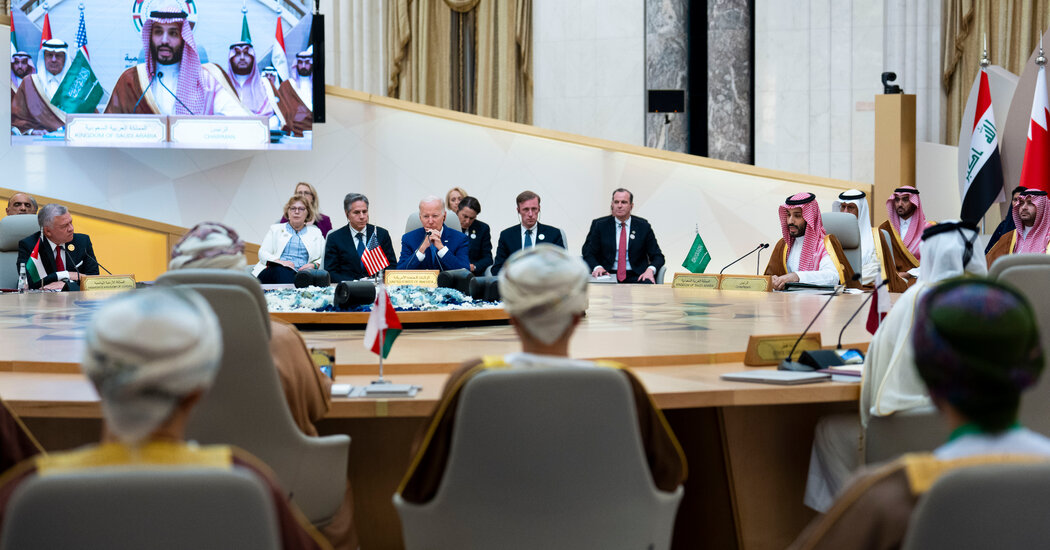Two years into President Biden’s term, his aides began negotiating with Saudi leaders to have the kingdom establish diplomatic relations with Israel. But when the Israel-Hamas war began last October, the talks withered.
American and Saudi officials have tried to revive prospects for a deal by demanding more from Israel — a cease-fire in Gaza and irreversible steps toward the founding of a Palestinian nation. Now those officials say they are close to a final agreement on the main elements of what the Saudis want from the deal: a U.S.-Saudi mutual defense pact and cooperation on a civilian nuclear program in the kingdom.
. . .
But there are no signs that Israeli leaders are moving to join them, despite the symbolic importance for Israel of establishing ties with Saudi Arabia, the most powerful Arab nation.
That resistance, along with a potential full-scale assault by the Israeli military on the Palestinian city of Rafah, puts in jeopardy a potential three-way grand bargain that Mr. Biden envisions as the foundation to a long-term solution to the decades-old Israeli-Palestinian conflict.



From a strategic point of view Fossil fuels are much better for global powers like the US. Renewables are decentralized. Countries cannot be threatened by Embargos or have their economies ruined by energy price surges. Corrupt politicians in the resource exploitation countries cannot be bribed and aided into power to subdue the population on all aspects of the economy any more.
It is the same strategic considerations like in the so called “war on drugs” If you have a strong military having goods in high demand that can only be produced in a few places allows for establishing global control.